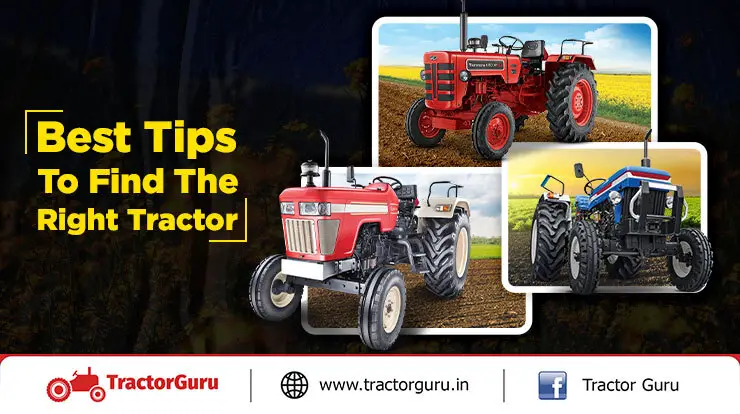This post may contain affiliate links which means I may receive a commission for purchases made through links. Learn more on my Private Policy page.
Choosing the right tractor for your farm is crucial for maximizing productivity and efficiency. With numerous options available in the market, it can be overwhelming to make the right decision. Factors such as the size of your farm, type of terrain, power requirements, and budget all play a significant role in determining the ideal tractor for your needs. In this article, we will guide you through the essential considerations and provide expert advice to help you choose the perfect tractor that will ensure smooth operations and help you achieve optimal results on your farm.
Factors to Consider
When it comes to choosing the right tractor for your farm, there are several factors that you should take into consideration. Each farm is unique, and what may work for one farmer may not necessarily be the best choice for another. By carefully considering these factors, you can ensure that you select a tractor that meets your specific needs and requirements. So let’s dive into the important factors to consider when choosing a tractor for your farm.
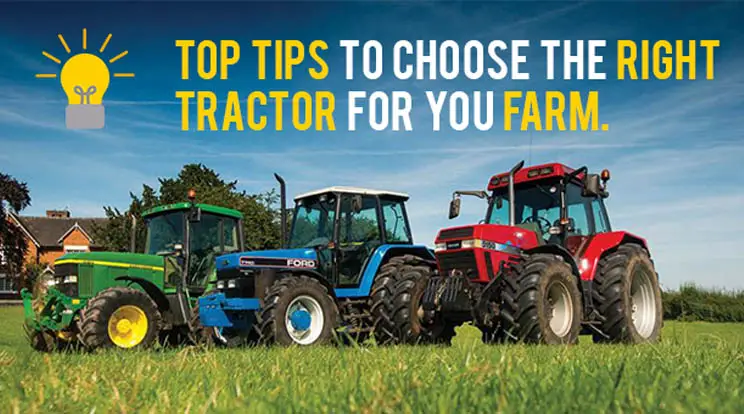
This image is property of www.tractorjunction.com.
Size of the Farm
The size of your farm is one of the most crucial factors to consider when selecting a tractor. The total land area, field layout, and accessibility all play a significant role in determining the appropriate size of the tractor. If you have a small farm with limited space and compact fields, a smaller tractor with a narrower wheelbase may be more suitable. On the other hand, if you have a large farm with expansive fields, a larger and more powerful tractor may be necessary to efficiently cover the area.
Terrain and Soil Type
The terrain and soil type of your farm also play a vital role in choosing the right tractor. If your farm has hilly or uneven terrain, you will need a tractor with good traction and stability. Consider the topography of your land and opt for a tractor that can handle the slopes and provide superior maneuverability. Additionally, different soil types require different tractor capabilities. Heavy clay soil may require a more powerful tractor to ensure effective tillage, while sandy soil may require a lighter tractor for efficient handling.
Type of Farming Operations
Consider the type of farming operations you engage in on your farm. Are you primarily involved in crop farming, livestock farming, or specialized farming activities? Each type of farming operation may have unique requirements that necessitate specific tractor features. For crop farming, you may need a tractor with options for precision planting and precision spraying. If you’re focused on livestock farming, a tractor with attachments for feeding and bedding may be essential. Specialized farming, such as vineyards or orchards, may require a compact tractor with specialized implements suitable for those specific crops.
Power and Horsepower Requirements
The power and horsepower requirements for your farm depend on the tasks you need to accomplish. Consider the peak power needs of your farm when selecting a tractor. If you have heavy-duty tasks, such as plowing large fields or hauling heavy loads, a high-horsepower tractor may be necessary. On the other hand, if your farming activities are more light to medium-duty, a lower horsepower tractor might suffice. Additionally, consider the power take-off (PTO) requirements if you need to operate machinery and implements that rely on the tractor’s power.
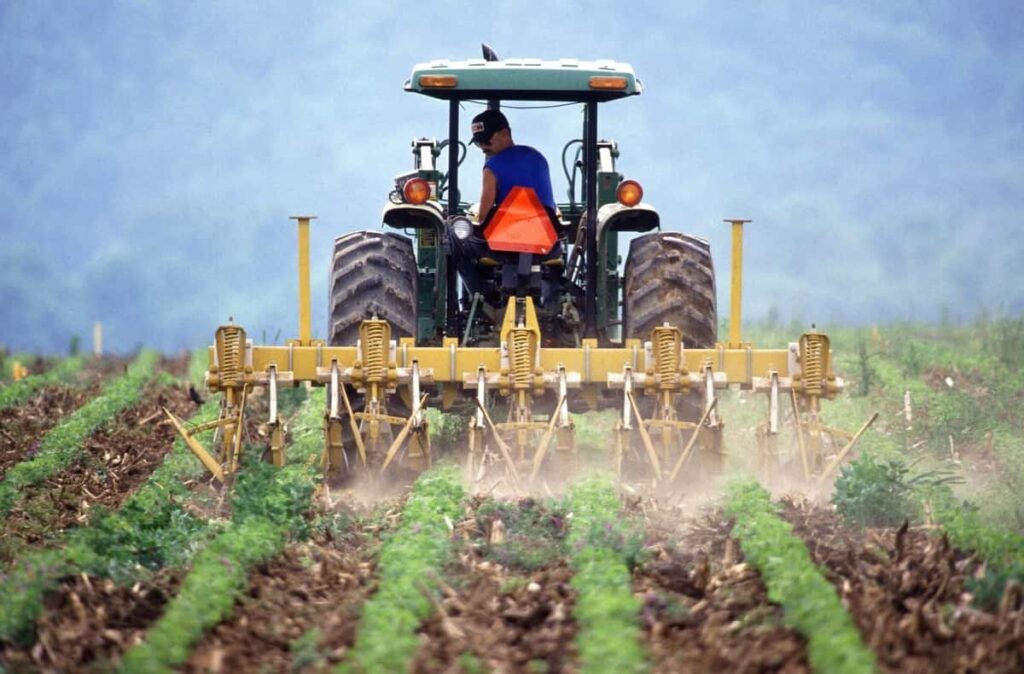
This image is property of www.agrifarming.in.
Attachments and Implements
Attachments and implements are essential components of a tractor’s functionality. Assess the required attachments and implements for your farming operations, such as loaders, mowers, balers, or seeders. Ensure that the tractor you choose is compatible with the specific attachments and implements you intend to use. Consider the mounting options and make sure the tractor has the necessary hydraulic system and auxiliary connections to support the implements you depend on.
Fuel Type
Tractors can run on various fuel types, including diesel, gasoline, electric, and alternative fuels. Each fuel type has its advantages and disadvantages. Diesel engines are known for their power and fuel efficiency, making them a popular choice for larger farms with heavy-duty tasks. Gasoline tractors are generally less expensive and may be suitable for smaller farming operations with lighter tasks. Electric tractors offer eco-friendly and cost-effective options, especially for farms focused on sustainability. Alternative fuels, such as biodiesel or propane, provide additional choices depending on availability and environmental considerations.
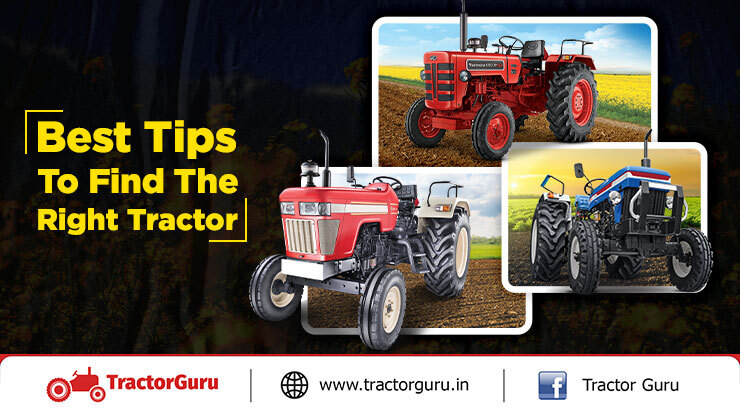
This image is property of tractorguru.in.
Budget
Determining your financial limit is an essential aspect of choosing the right tractor. Consider your budget and evaluate the long-term value and return on investment. Keep in mind that a tractor is a significant investment, and it’s crucial to strike a balance between upfront costs and the tractor’s capabilities and longevity. Prioritize your farming needs while considering the affordability of the tractor models that meet your requirements.
Maintenance and Service
Like any equipment, tractors require maintenance and service to ensure their optimal performance and longevity. Consider the ease of maintenance when selecting a tractor. Are the necessary maintenance tasks straightforward, or do they require specialized knowledge? Additionally, evaluate the availability of service and spare parts in your area. It’s important to have local support and ready access to spare parts to minimize downtime. Keep an eye out for warranty options and extended service plans offered by manufacturers or dealers as they can provide added peace of mind.
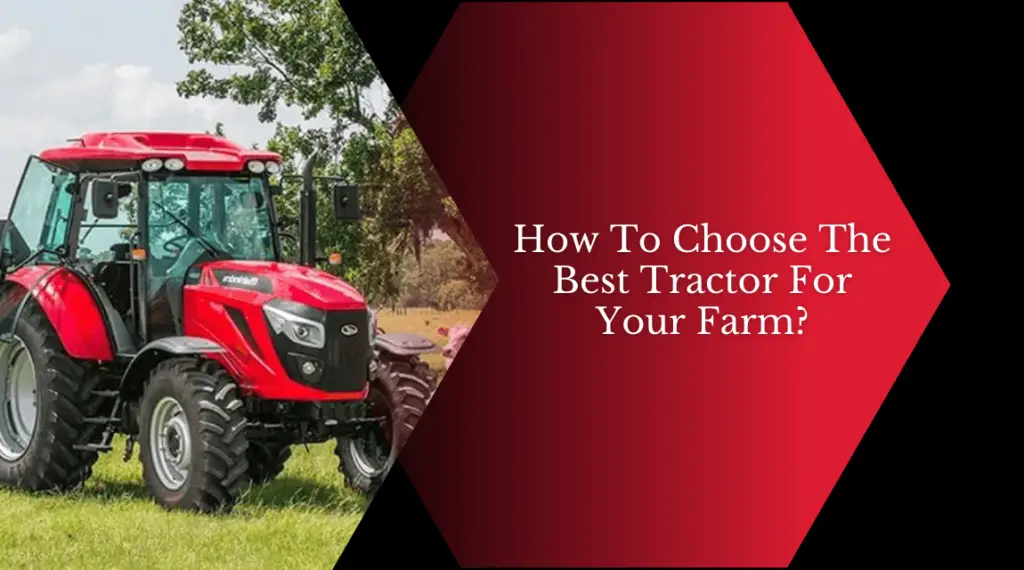
This image is property of www.diamondbtractors.com.
Brand and Dealer Support
The brand and dealer support are significant factors to consider when choosing a tractor. Opt for a reputable brand known for manufacturing reliable and durable tractors. Well-established brands often have a wide range of models and configurations to choose from, catering to different farm sizes and requirements. Additionally, evaluate the dealer support in your area. A reliable dealer with a good reputation can provide valuable guidance, exceptional customer service, and prompt assistance when needed.
Resale Value
Considering the resale value of a tractor is crucial, especially if you plan to upgrade or replace your equipment in the future. Brand reputation and popularity play a role in determining the resale value. Well-known brands with a strong market demand tend to retain their value better over time. Additionally, the equipment’s condition and maintenance history influence its resale value. Regular maintenance and proper care can contribute to a higher resale price. Stay informed about current market trends to understand which tractor models hold their value and are in demand.
By carefully considering these factors – the size of your farm, terrain and soil type, type of farming operations, power and horsepower requirements, attachments and implements, fuel type, budget, maintenance and service, brand and dealer support, and resale value – you will be well-equipped to choose the right tractor for your farm. Remember to prioritize your specific farming needs and select a tractor that aligns with your long-term goals, ensuring efficiency, productivity, and success on your farm.
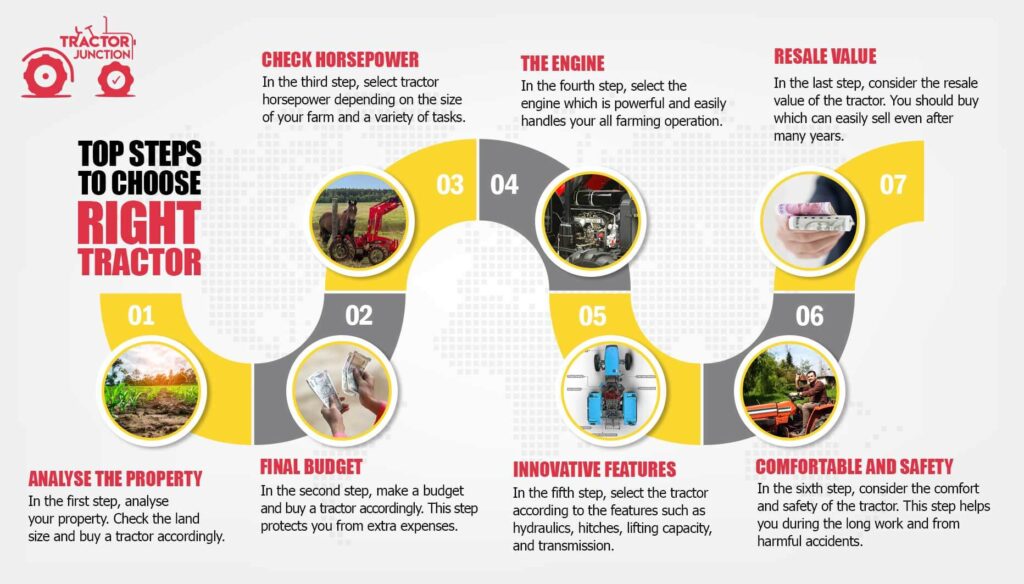
This image is property of www.tractorjunction.com.
This post may contain affiliate links which means I may receive a commission for purchases made through links. Learn more on my Private Policy page.

